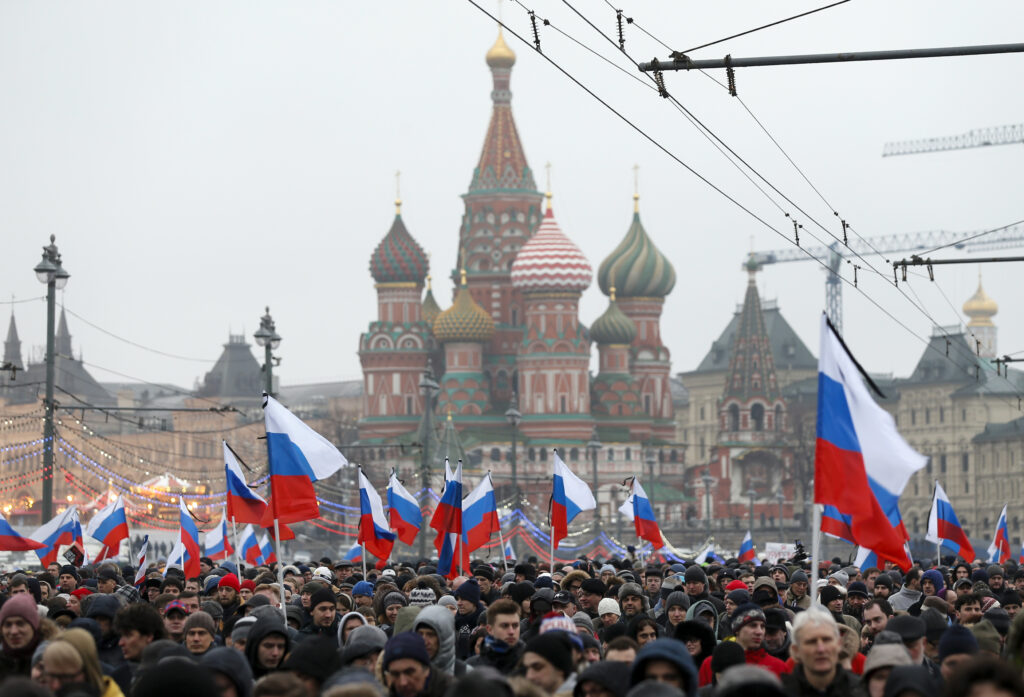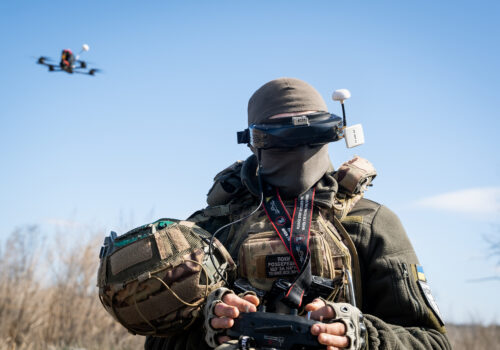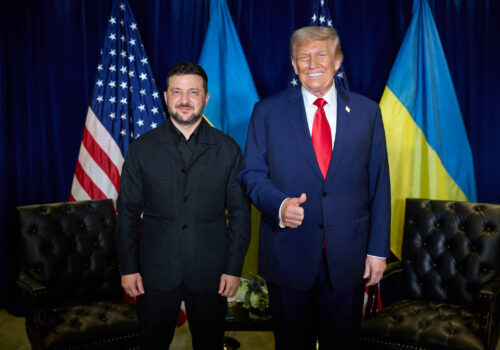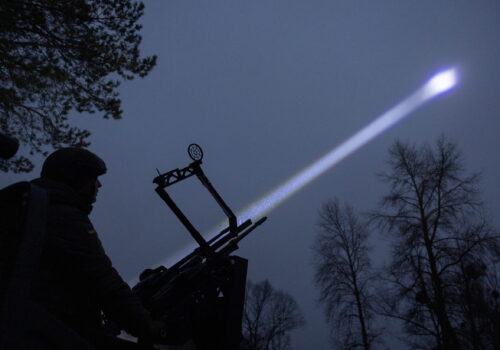Since early August 2025, Ukraine has been conducting a long-range bombing campaign targeting the oil and gas industry infrastructure that fuels the Russian war economy. This air offensive has proved highly successful, leading to reduced export revenues and gasoline shortages across Russia. However, while what many Ukrainians refer to as “drone sanctions” are clearly adding to the Kremlin’s economic woes, this is unlikely to spark any kind of meaningful domestic Russian opposition to the ongoing invasion of Ukraine. Instead, progress toward peace will depend on sustained external pressure from Kyiv and its international partners.
While the Kremlin is understandably eager to conceal the scale of the damage caused by Ukraine’s energy sector attacks, there can be little question that the strikes conducted in recent months are bringing Putin’s invasion home to ordinary Russians. In early October, the Paris-based International Energy Agency downgraded its outlook for Russia and assessed that the impact from Ukrainian drone strikes will suppress Russia’s refinery processing rates until at least mid-2026. Meanwhile, car owners across Russia are being forced to queue for gasoline amid supply issues not witnessed since the dark days of the early 1990s.
The current wave of fuel shortages is undermining Kremlin efforts to shield the Russian population from the negative consequences of the war in Ukraine. Putin has been careful to limit the impact of the invasion on ordinary Russians, with military recruitment concentrated on disadvantaged regions of the country, prison populations, and financially motivated volunteers. This approach is very much in line with the unwritten ‘social contract’ that has evolved during the 25 years of Putin’s reign, whereby he offers the Russian public higher living standards in exchange for curtailed personal freedoms and political passivity.
The so-called social contract between Putin and the Russian population had already begun to unravel long before the present wave of Ukrainian attacks on Russia’s energy industry. Over the past three and a half years, the full-scale invasion of Ukraine has resulted in military losses unseen in Europe since World War II. At least one million Russians have been killed or wounded in the conflict, according to Britain’s Ministry of Defense and other international sources.
In parallel, economic growth in all but the defense sector has stagnated, with massive payments to military personnel deepening public dependency on the war. Throughout Russian society, policies of repression have reached unprecedented new levels as Putin has exploited wartime conditions to complete the country’s transition from flawed democracy to authoritarian dictatorship. Despite this deteriorating domestic situation, there is still no sign of any significant anti-war movement in today’s Russia.
Stay updated
As the world watches the Russian invasion of Ukraine unfold, UkraineAlert delivers the best Atlantic Council expert insight and analysis on Ukraine twice a week directly to your inbox.
It is probably unrealistic to expect any Russian revolt over Putin’s breach of the social contract. This should not come as a surprise. While opinion polls have often indicated strong public support for the Putin regime, the Kremlin has always relied primarily on coercion rather than consensus. Throughout Putin’s reign, opposition figures have been exiled, imprisoned, or silenced, while the independent media has been muzzled and civil society suppressed. Following the onset of the full-scale invasion, these trends have all intensified. As a result, there is currently little prospect of any grassroots protests.
Opposition from within Russia’s elite looks equally unlikely. With the Russian economy increasingly on a war footing, the full-scale invasion is now a crucial factor determining the wealth and status of the country’s political and business establishment. With most members of the elite personally dependent on Putin and largely locked out of the Western world, the conditions for a Kremlin coup appear to be almost entirely absent. Instead, the invasion of Ukraine has allowed Putin to consolidate his grip on power and has forced those around him to draw closer to the throne.
Eurasia Center events

This does not mean that Ukraine’s current strategy of long-range strikes against the Russian energy sector is futile. Far from it, in fact. But with Putin firmly entrenched on the home front, only external pressures can realistically force him to abandon his invasion. Ukrainian attacks on Putin’s oil and gas industry are already having a significant impact on the Russian economy. If the current momentum can be maintained into 2026, the economic damage could become far more severe. This will curtail Moscow’s ability to finance and prosecute the war in Ukraine, while also negatively impacting many other aspects of Russian daily life.
Ukrainian efforts to push Putin to the negotiating table can only succeed with stronger Western support. Despite Russia’s claims of resilience, its economy remains heavily dependent on energy exports, with China and India the main clients. Effective Western action should include tightening sanctions on these buyers. Efforts must also continue to end all European purchases of Russian energy exports, either directly or via third parties. Additionally, Western leaders could help end the war by working to bring down global oil prices, thereby starving the Kremlin of much-needed export revenues.
Economic measures alone will not be enough. Military aid to Ukraine should also increase, with an emphasis on the provision of weapons systems capable of strengthening Ukraine’s domestic defenses while allowing Kyiv to expand attacks inside Russia. The objective should be to stabilize the front lines in Ukraine and protect Ukrainian cities from bombardment, while escalating the destruction of Russia’s war economy through a combination of air strikes and sanctions. If these goals can be achieved, Putin may finally be compelled to seek a settlement.
Christopher Isajiw is an international relations commentator and business development consultant to private, governmental, and non-governmental organizations.
Further reading
The views expressed in UkraineAlert are solely those of the authors and do not necessarily reflect the views of the Atlantic Council, its staff, or its supporters.

The Eurasia Center’s mission is to enhance transatlantic cooperation in promoting stability, democratic values, and prosperity in Eurasia, from Eastern Europe and Turkey in the West to the Caucasus, Russia, and Central Asia in the East.
Follow us on social media
and support our work
Image: People carry Russian national flags with attached black ribbons during a march to commemorate Kremlin critic Boris Nemtsov, who was shot dead on Friday night, near St. Basil's Cathedral in central Moscow March 1, 2015. Holding placards declaring "I am not afraid", thousands of Russians marched in Moscow on Sunday in memory of Nemtsov, whose murder has widened a split in society that some say could threaten Russia's future. (REUTERS/Maxim Shemetov)




